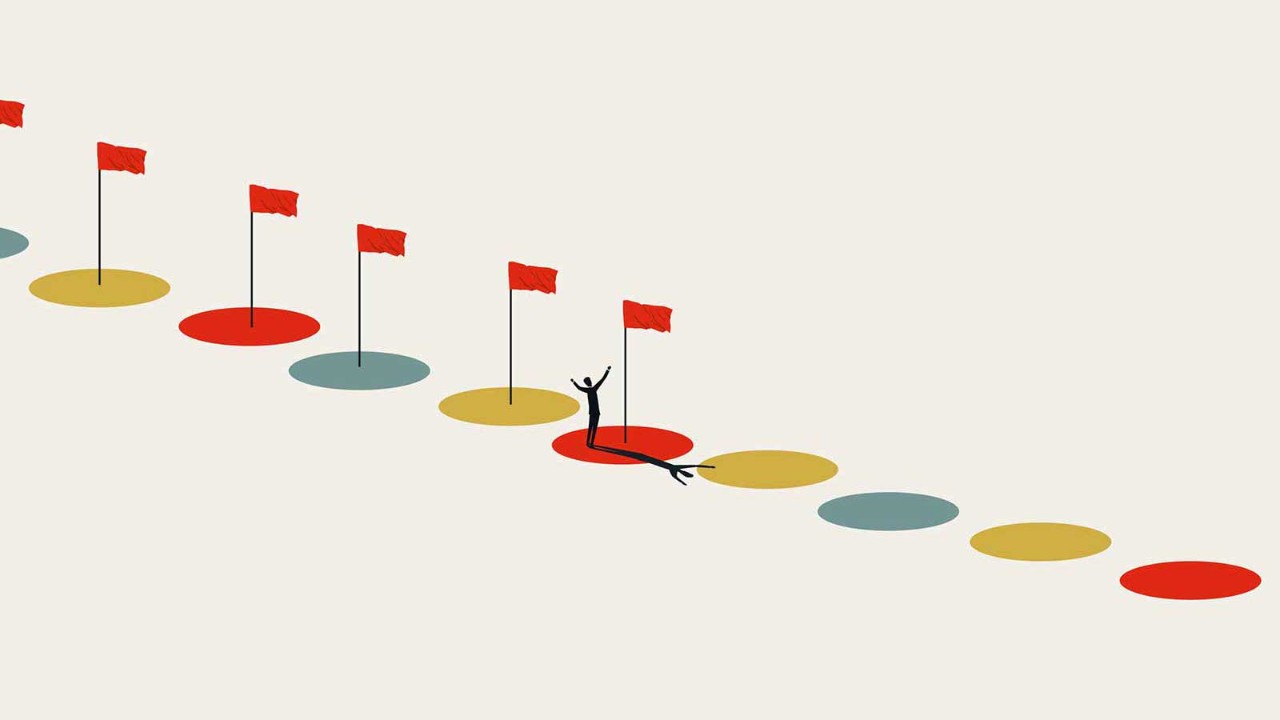
A lot of productivity, self-development and wellness advice is well-meaning but too restrictive for many of us. When you aren’t able to follow the prescriptive instructions, or you miss a day, it can feel like you’re a failure, you’ve no staying power and you may as well give up.
This is where taking the pressure off to do it ‘just right’ and embracing the concept of micro-gains makes all the difference.
Small snippets of time, practised over and over, build up to make a difference
Compound the improvements
Micro-, or marginal, gains helped former performance director Dave Brailsford take British Cycling from being a minor player in the sport to dominating the field globally. He used a strategy of micro-gains to look at every aspect of the team's activities, with the aim of improving each by just 1%.
Small adjustments ranged from improving fabrics to make clothing lighter and more aerodynamic, to redesigning bike seats for comfort. But changes were also made in less obvious areas such as washing hands more thoroughly to reduce the chances of becoming ill, and finding the perfect pillow and mattress for each cyclist to ensure a good night's sleep. Instead of going all in on radical changes, it was these tweaks that helped British Cycling to win more than half of the road and track cycling gold medals at the 2008 Beijing Olympics, as well as the Tour de France in 2012.
Apply 1% thinking
Let’s say you want to meditate on a daily basis but you’re put off by how much time it will take. Use the strategy of micro-gains and spend 1% of your day meditating. Once you subtract the recommended eight hours' sleep, 1% of your 16 waking hours is just 10 minutes. By applying the concept of micro-gains, you’ve made the action of meditating easier and more doable.
Stacking a new habit with a well-established one makes it easier to remember
If you meditate for 10 minutes six times in a week (you may miss a day), you’ll have managed a whole hour in a way that was more achievable than trying to do it in one or two sessions. And if ten minutes still feels too much, you can make it five minutes, or three – whatever feels doable for you.
The same thinking applies to any new activity or habit you want to carry out on a regular basis. Take 1% – 10 minutes – of your day to walk, journal, stretch, read, or learn a language.
If trying the new activity for 10 minutes at a time, a few times, doesn't feel like it's working for you don't be quick to ditch it. Take a little time to look at not only what you've been doing but how, when and where. If you're finding it hard to remember to carry out the activity, would it help to adjust the time of day you do it?
Try pairing your new activity with a well-established habit. Known as habit stacking, carrying out your new action immediately before or after a habitual activity makes it easier for you to remember because it's not a standalone action, and makes it more likely to happen.
Remember that these small snippets of time, practised over and over, compound and build up to make a difference to you.
Sticking with it
Accepting you’re a human being with fluctuations in mood, energy, time and responsibilities is the first step in helping yourself to make the changes you want.
Here are three tips:
- Experiment. Instead of rigidly following a prescribed method, experiment to see how it can work for you. Try it out, collect information on the experience, tweak and try it again. Or, if it doesn’t feel supportive, give yourself permission to let it go and try something else. Remember: anything new can feel uncomfortable because it’s different and takes a while to feel the benefits, so before you ditch it be honest about your reasons.
- Habit stack. Habits take a while to establish and, even with great intentions, we can forget to do them. Stacking a new habit with a well-established one – perhaps brushing your teeth, drinking your morning coffee or getting ready for bed at night – makes it easier to remember and become part of your regular routine.
- Try again. When you miss a day because you forget, you were too busy, you ran out of time or you just didn’t want to do it, forgive yourself and try again. For those of us prone to perfectionism, we can feel like we’ve ruined the streak, everything we’ve done was a waste of time and there’s no point continuing. Missing a day, or more, isn’t what matters. Deciding to have another go, to recommit over and over, is what will allow your micro-gains to accumulate.
The benefits build up
Taking little steps, persistently and consistently, will keep moving towards where you want to go.
The message you’re giving yourself is that you can handle challenges and setbacks
And, in the process, you build trust in yourself. Each time you take a step, each time you try again after missing a day, each time you fine tune the action to work better for you, the message you’re giving yourself is that you’re worth making the effort, you care about yourself and you can handle challenges and setbacks.
With this comes greater self-compassion and self-knowledge, all of which helps you to set aligned goals which you have a greater chance of achieving.
More information
Visit ACCA’s wellbeing hub for advice and resources to support your mental health at work.
Gabrielle Treanor’s book, The 1% wellness experiment, was recently published by Headline.


